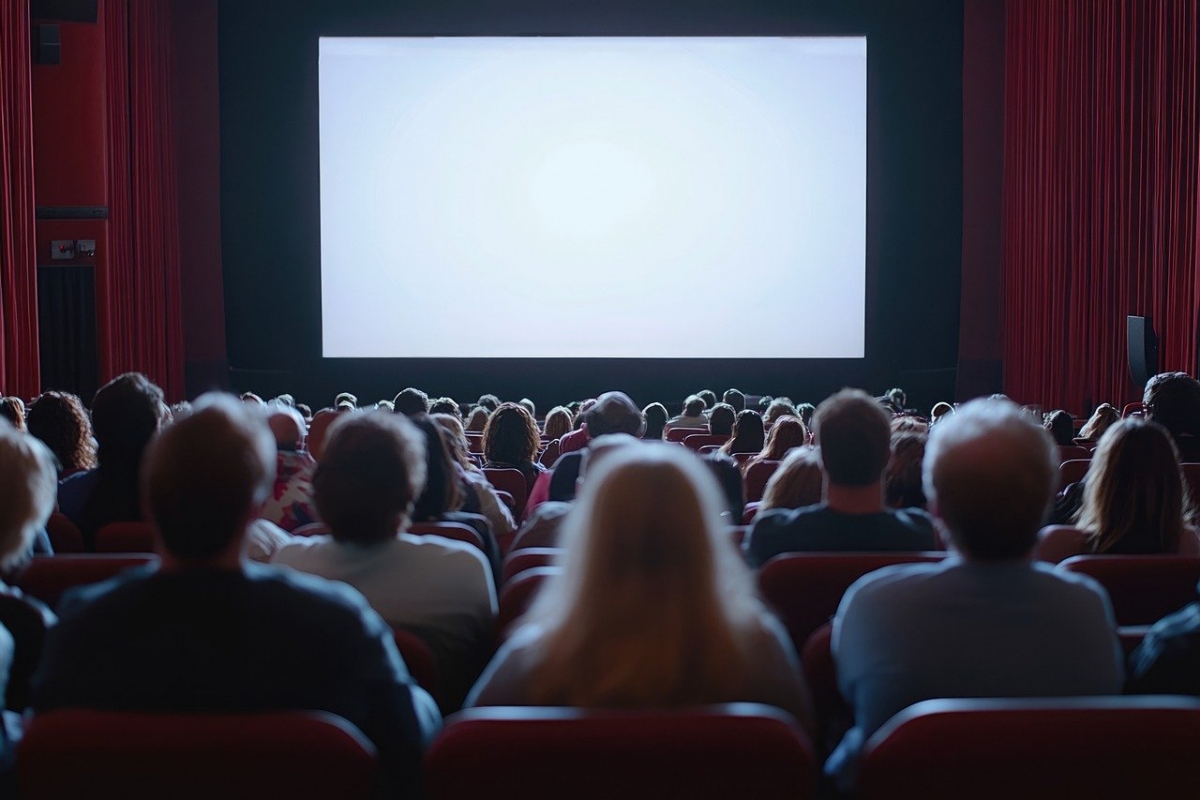Do we really like what we like? How social influence processes shape our experiences when we are online
reviewed by: Yuhan Li and Stephan Winter
We have all been in that situation where we see a post on social media but spend more time reading the comments section than the actual post. In this scenario, can the comments written by others influence our own opinions about the post? More generally, can the reactions of other people change the way we perceive media messages?

In today’s digital world, we are constantly exposed to other people’s opinions. When watching a YouTube video, for example, the comments below tell us exactly what others think about it. Platforms use this information: On many
social media platforms, algorithms recommend us content simply because other people liked it. This seems to make sense, after all, humans are said to be herd animals and where others go, we follow. Yet, it does make me wonder: Do we really like what we like because we like it, or do we only like what we like because others do?
I am certainly not the first person to ask this question, and neither am I the first scientist to investigate it. To better understand what shapes our experiences, researchers have often asked people to come to a lab and watch television in the company of others. These other people were usually members of the research team who were instructed to react to the television content in a specific way (e.g., by showing that they enjoyed it). Such study set-ups have been used for a long time and they show that people’s experiences of the content that they watch are indeed influenced by others. As early as 1986, for example, a team of researchers led by Dr. Dolf Zillmann found that people’s enjoyment of horror movies was influenced by
gender roles. That is, women had more fun watching a horror movie when they watched it together with a man who showed mastery of fright rather than
distress, whereas men enjoyed the same movie more if they were accompanied by a woman showing
distress rather than mastery of fright [1]. In a more recent study, Dr. Nurit Tal-Or found that watching a movie together with someone who shows positive reactions to it increases people’s immersion in the story [2].
At first sight, inviting people to come to a lab and watch a movie together with someone else seems to have little to do with
social media. But the rise of these platforms made it easier for scholars to study how experiences are influenced by the reactions of others. Think about it: We have all been in that situation where after examining an interesting post on Instagram, our attention was drawn to the reactions that other people left in the comments section. Is it possible that these reactions affect our thoughts about
social media posts in the same way that real life co-viewers influence our experiences of movies?
It seemed to me that if the real-life reactions of co-viewers can change how people experience television content, the written reactions of fellow
social media users can potentially also change how individuals experience
social media posts. In contrast to the research group investigating people’s experiences of horror movies in the 1980s, I figured I could investigate this matter in a relatively simple way. If I could show people some
social media post and change the comments that accompanied it, I could investigate how this changes people’s experiences of the post. Sure, this requires some
creativity when it comes to designing fake user comments. But it is much cheaper and faster than renting a lab room, inviting people to come in one by one to watch a full-length movie, and ask a colleague to react to the movie in a specific way. Not surprising, scientific research into processes of social influence rapidly increased during the 2010’s, as
social media were becoming a part of everyday life [e.g., 3-7].

Exploring the influence of user comments on
social media users’ entertainment experiences, we conducted an experiment in which we showed people a short, animated video on YouTube. Unknown to the participants, we showed some people user comments that discussed the video positively (e.g., “I had such a good time watching this hahaha”), whereas we showed other people the same video accompanied by negative comments (e.g., “Such a boring movie”). After watching the video, we asked people to indicate how much they had enjoyed watching it. We found that people who saw the positive comments indicated that they had more fun watching the video than people who saw the exact same video but who were exposed to negative comments [8].
So, it seemed to be true: The remarks and evaluations of other people determine, at least in part, how much we like stuff! Yet, I couldn’t help but wonder: Did the people who saw positive comments really enjoy the video more, or did they just say that they did because they believed that others liked the video a lot? In the same vein: Did the people who saw the negative comments really had less fun watching the video, or did they just say that they did because to them, others did not seem to enjoy it? Do our actual experiences change, or do we just pretend so that we can fit in with the crowd?
To answer this question, we conducted a second experiment to further investigate the effects of online comments [9]. In addition to showing some people negative and some people positive comments, we showed some people comments before watching a video, while others saw the comments after they had watched the video. This time, not only did we ask people to rate their enjoyment of the video at the end of the study, but we also asked them to rate their enjoyment of the video while they were watching it.
Common sense agrees with me here: For those people who first watch the video and then see comments about it, it would be impossible for the comments to affect their enjoyment of the video. Yet, the results that we found almost made me doubt this.
We examined the data of people who first watched the video and read user comments about it afterwards. Our results showed that when asked to indicate at the end of the study how much they had enjoyed the video, people who saw positive comments indicated that they had more fun watching than people who saw negative comments. Despite us establishing this very scenario as an impossibility, the statistics showed an effect of the comments on viewers’ ratings of their video enjoyment. How could this happen?
In our endeavor to tackle this conundrum, we examined our data further. There, we found a clue as to what happens when people are exposed to user comments when they watch online content. The data showed that depending on when individuals see comments, different psychological mechanisms kick in. When people first watch a video and then read comments about it, they give higher ratings of their video enjoyment at the end of the study when the comments are positive (compared to when they are negative). Yet, and this is in line with
common sense, we also saw that in such situations, the comments do not affect how much fun people indicate they are having while watching the video. Hence, it seems that when people watch a video and then read comments about it, their enjoyment while watching is not affected by how positive or negative the comments are, but at the end of the study, they will claim that it was. One reason that they do so may be because they want to conform to the opinions of others. Our herding tendencies kick in here: We want to like what others like.

When looking at the people who first read comments about a video and then watched that video, the comments did affect their enjoyment while watching. The fact that they had more fun while watching the video also led these people to give higher ratings of their video enjoyment at the end of the study. Hence, when people first read others’ opinions about content, the way that they process and experience that content changes. In this case, it seems that written reactions of others can actually change how we experience media messages – just like the expressions of co-viewers in the earlier lab studies [9].
Zooming out, our research shows us that when people post comments in response to online media content, they influence how others experience that content. But it also provides clues about the psychological mechanisms that underly this effect or, put simply, how this effect works. Furthermore, while conducting the studies and analyzing our data, it became clear that by adding specific elements and tweaking them a little bit (such as varying the timing of exposure to comments), we can build on previous studies to dive deeper and deeper into the phenomenon that we are studying. If you ever wondered why science is slow, this shows you why: Because every small element that we add to our research requires a new study.
Coming back to the question if we like what we like because we like it, or because others do, the answer is (as is so often the case when you ask social scientists): It depends. The reactions that others give to media content can shape the way we experience and thus like content if we are made aware of these reactions beforehand. In cases where we learn about other people’s reactions after examining content, despite our actual experiences not being impacted, we tend to conform our descriptions of our experiences to the reactions of others. And so, it seems that humans are herd animals in more than one way. Not only can our perceptions of the world actually change due to the remarks of others, in cases where this is impossible, we will still pretend that this was the case. So, the next time you write a comment in response to a
social media post, be aware the impact that your comment may have. You can either change other people’s processing of the post if they read your comment first, or others may mimic you in their own reactions to the content just to fit in with the crowd. In this specific scenario, the science clearly shows: It takes very little to be an influencer!
Pictures: pixabay
Bibliography
[1] D. Zillmann, J. B. Weaver, N. Mundorf, and C. Aust F., “Effects of an opposite-
gender companion’s affect to horror on
distress, delight, and attraction,” J. Pers. Soc. Psychol., vol. 51, no. 3, pp. 586–594, 1986.
[2] N. Tal-Or, “How co-viewing affects attitudes: The mediating roles of transportation and identification,” Media Psychol., vol. 19, no. 3, pp. 381–405, Jul. 2016, doi: 10.1080/15213269.2015.1082918.
[3] J. B. Walther, D. DeAndrea, J. Kim, and J. C. Anthony, “The influence of online comments on perceptions of antimarijuana Public Service Announcements on YouTube,” Hum. Commun. Res., vol. 36, no. 4, pp. 469–492, Sep. 2010, doi: 10.1111/j.1468-2958.2010.01384.x.
[4] J. Cameron and N. Geidner, “Something old, something new, something borrowed from something blue: Experiments on dual viewing TV and Twitter,” J. Broadcast. Electron. Media, vol. 58, no. 3, pp. 400–419, Jul. 2014, doi: 10.1080/08838151.2014.935852.
[5] R. Shi, P. Messaris, and J. N. Cappella, “Effects of online comments on smokers’
perception of antismoking Public Service Announcements,” J. Comput.-Mediat. Commun., vol. 19, no. 4, pp. 975–990, Jul. 2014, doi: 10.1111/jcc4.12057.
[6] T. F. Waddell and S. S. Sundar, “#thisshowsucks! The overpowering influence of negative
social media comments on television viewers,” J. Broadcast. Electron. Media, vol. 61, no. 2, pp. 393–409, Apr. 2017, doi: 10.1080/08838151.2017.1309414.
[7] S. Winter, N. C. Krämer, B. Benninghoff, and C. Gallus, “Shared entertainment, shared opinions: The influence of social TV comments on the evaluation of talent shows,” J. Broadcast. Electron. Media, vol. 62, no. 1, pp. 21–37, Jan. 2018, doi: 10.1080/08838151.2017.1402903.
[8] A. M. Möller and R. Kühne, “The effects of user comments on hedonic and eudaimonic entertainment experiences when watching online videos,” Communications, vol. 44, no. 4, pp. 427–446, Nov. 2019, doi: 10.1515/commun-2018-2015.
[9] A. M. Möller, S. E. Baumgartner, R. Kühne, and J. Peter, “Sharing the fun? How social information affects viewers’ video enjoyment and video evaluations,” Hum. Commun. Res., vol. 47, no. 1, pp. 25–48, Feb. 2021, doi: 10.1093/hcr/hqaa013.

